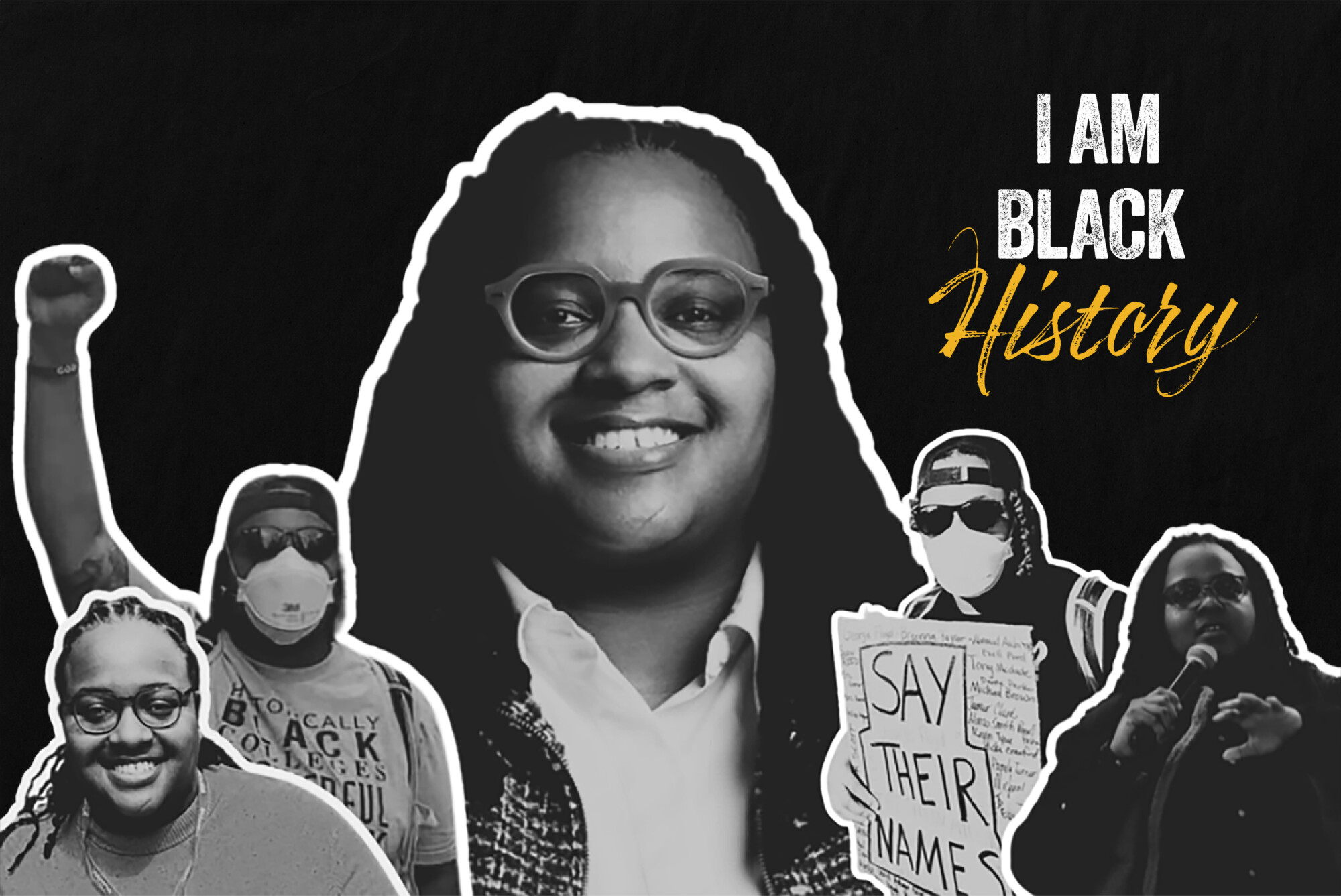Reflecting on Black economic power with our Industry Relations & Partnerships Manager, Angelique Cooper

Black History Month is a time to reflect on the resilience, contributions, and leadership of Black communities and their leaders throughout history. At Beneficial State Foundation, we recognize that true progress requires more than just celebration—it calls for continued collective action, accountability, and an unwavering commitment to racial and economic justice. This year, we had the privilege of speaking with Angelique Cooper, our Industry Relations & Partnerships Manager, about what Black History Month means to her and what steps we can take to continue driving lasting change into the future.
Can you tell us about a Black leader who has inspired you and why?
AC: I am inspired by my late aunt, Marnetta LaJoyce Belin-Watts, who was born in Pine Bluff, Arkansas, in 1966—at the height of the Civil Rights Movement. She entered the world during turbulent times, in a country that would never fully love or value her.
My aunt was like singing your favorite song at the top of your lungs on a car ride—soulful, uplifting, and full of life. She was an advocate for the most vulnerable, a wellspring of compassion, and the epitome of selflessness, always giving without complaint. She built community wherever she went—not because she had to, but because it was simply who she was.
Guided by faith, she had an extraordinary ability to bring out the good in people. She made you better. She challenged you to be better.
She was beautiful.
She was bold.
She was fearless.
And in every essence of the word, she was a woman.
Though she did not have a formal education beyond the eighth grade, she carried wisdom that could never be taught in classrooms. Her intellect, lived experiences, and unwavering spirit made her a scholar in the ways that truly mattered. As the oldest of six and later the matriarch of our family, her sacrifices became the foundation upon which we continue to stand.
Her fortitude reminds me that success isn’t just measured by accolades or status—it is defined by the lives we uplift and the legacies we leave behind.
And in that, my aunt was unstoppable.
When I do this heart work, I do so with conviction and benevolence—committing to serve wholeheartedly, aspiring to create infectious change, and fortifying those around me, with the hope of leaving an indelible impact, just as my aunt did.
What advice would you give to the next generation of Black changemakers working to build a more just future?
AC: To the next generation of Black changemakers: stay relentless, stay visionary, and stay rooted in community.
The fight for justice has never been a solo effort. Build strong networks, uplift collective power, and push for systemic change—not just surface-level reform. Leverage history as both a lesson and a blueprint; the struggles of those before you have laid a foundation, but it is your turn to innovate, disrupt, and redefine what’s possible.
Master the systems you seek to change. Whether in finance, policy, education, or activism, understanding how power operates allows you to dismantle inequities from within while building alternatives that serve your people. Use data, technology, and strategy to amplify your impact.
Take up space unapologetically. You belong in every room where decisions are made. Demand access, demand resources, and demand equity. And when the doors won’t open? Create your own institutions, businesses, and platforms that reflect the future you’re building.
Most importantly, sustain yourself. Movements don’t thrive on burnout. Rest is revolutionary, and your longevity matters just as much as your impact. Keep pushing, keep innovating, and know that every step forward brings us closer to justice.
Take up space unapologetically. You belong in every room where decisions are made. Demand access, demand resources, and demand equity. And when the doors won’t open? Create your own institutions, businesses, and platforms that reflect the future you’re building.
What does Black History Month mean to you personally and professionally?
AC: I believe Black History Month cannot be confined to just 28 or 29 days—
It’s everyday.
It is found in our inventions.
In our music.
In our art.
In our literature.
In our activism.
In our scientific breakthroughs.
In our entrepreneurship.
Most importantly, it is in the very DNA of our nation.
It lives in the streets we walk.
The buildings we design.
The policies we shape.
The businesses we build.
The communities we uplift.
It echoes in the halls of our schools.
The stages of our theaters.
The arenas of our sports.
The pulpits of our churches.
It is seen in the resilience of our ancestors.
The progress of today.
The possibilities of tomorrow.
Our history is rich, resilient, and undeniable.
Whether recorded in history books…
Echoed in the rhythms of our music…
Reflected in our traditions…
Or passed down through family stories…
Our existence is nothing short of magical.
At every turn, we have faced obstacles—
And yet, we overcome them.
Personally, Black History Month reminds me of who I am.
Professionally, it reinforces that my work is not yet done.
I recognize the responsibility we carry to show up, and I am reminded daily:
“Because of them, we can.”
Black history is proof that I am not defined by the perceptions or limitations of others.
We persist.
We prevail.
We prosper.
How can financial institutions better support Black communities?
AC: Banks must do more than acknowledge inequality—they must take action. How?
- Increase Access to Capital. End discriminatory lending by revising outdated credit models and ensuring fair loan access for Black borrowers.
- Support Black Homeownership. The Black homeownership rate (44.3%) is lower than it was in 2000 and the racial gap remains wider than it was during legal segregation (Urban Institute, 2022). Banks must expand equitable lending to close this gap.
- Fund Black-Owned Businesses. Black entrepreneurs face higher loan rejection rates and steeper interest costs. Banks must ensure fair access to capital, lower interest rates, and eliminate bias in lending.
- Eliminate Predatory Banking. End exploitative fees, biased risk assessments, and racial disparities in mortgage lending. Our Equitable Bank Standards call for reducing overdraft fees, reforming underwriting, ensuring transparent pricing, and eliminating racial bias in risk assessments.
- Invest in Financial Education. Generational exclusion from banking has denied Black communities wealth-building knowledge. Banks should provide free financial literacy programs to help bridge this gap.
- Adopt Participatory Investment. Shift power to communities by creating advisory boards, funding community-led real estate projects, and supporting cooperative financial models (Beneficial State Foundation, 2023; Transform Finance, 2023).
- Innovate for Equity. The financial industry has the data, technology, and resources to create inclusive credit models and community-driven banking solutions. Innovation should not be a buzzword—it should be a commitment to breaking cycles of exclusion and building a financial system that works for everyone.

